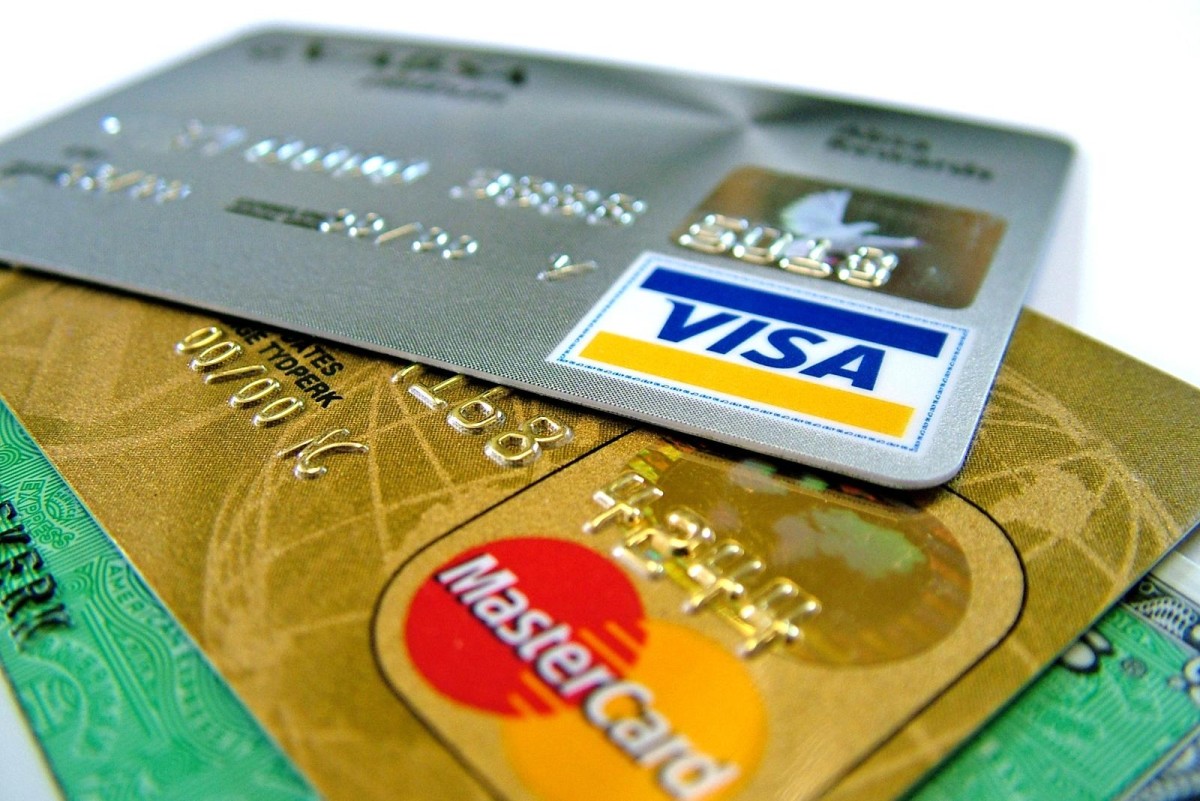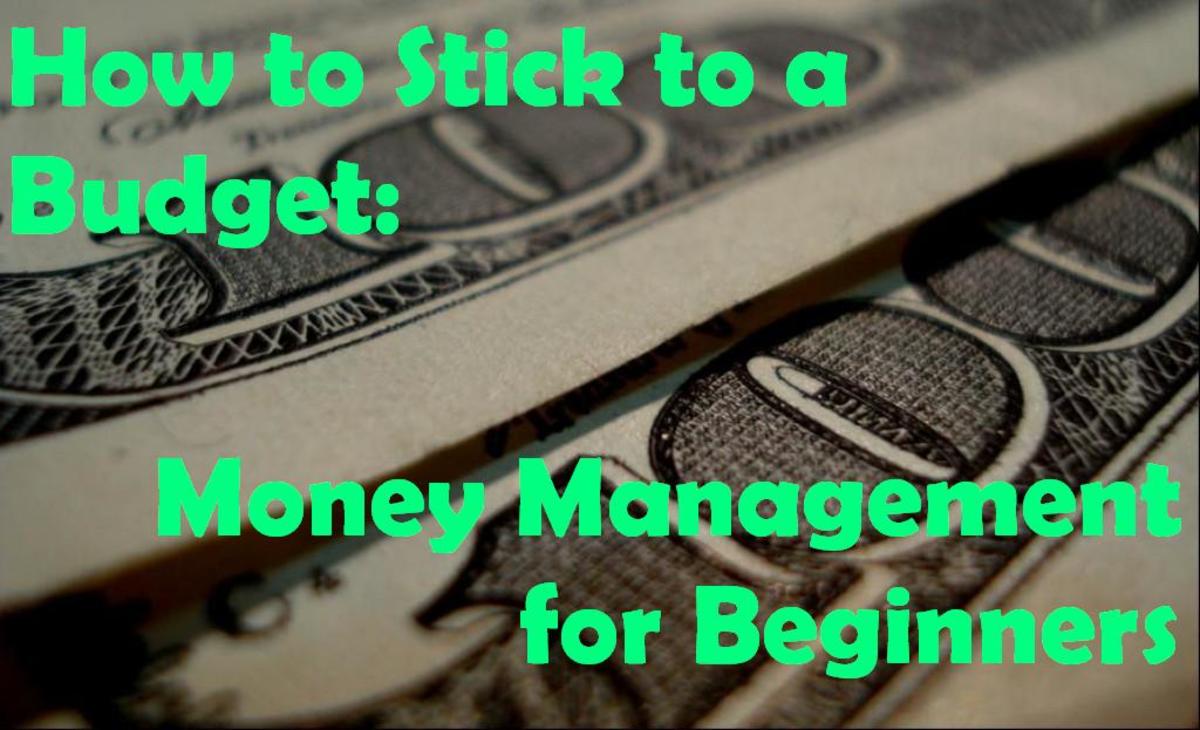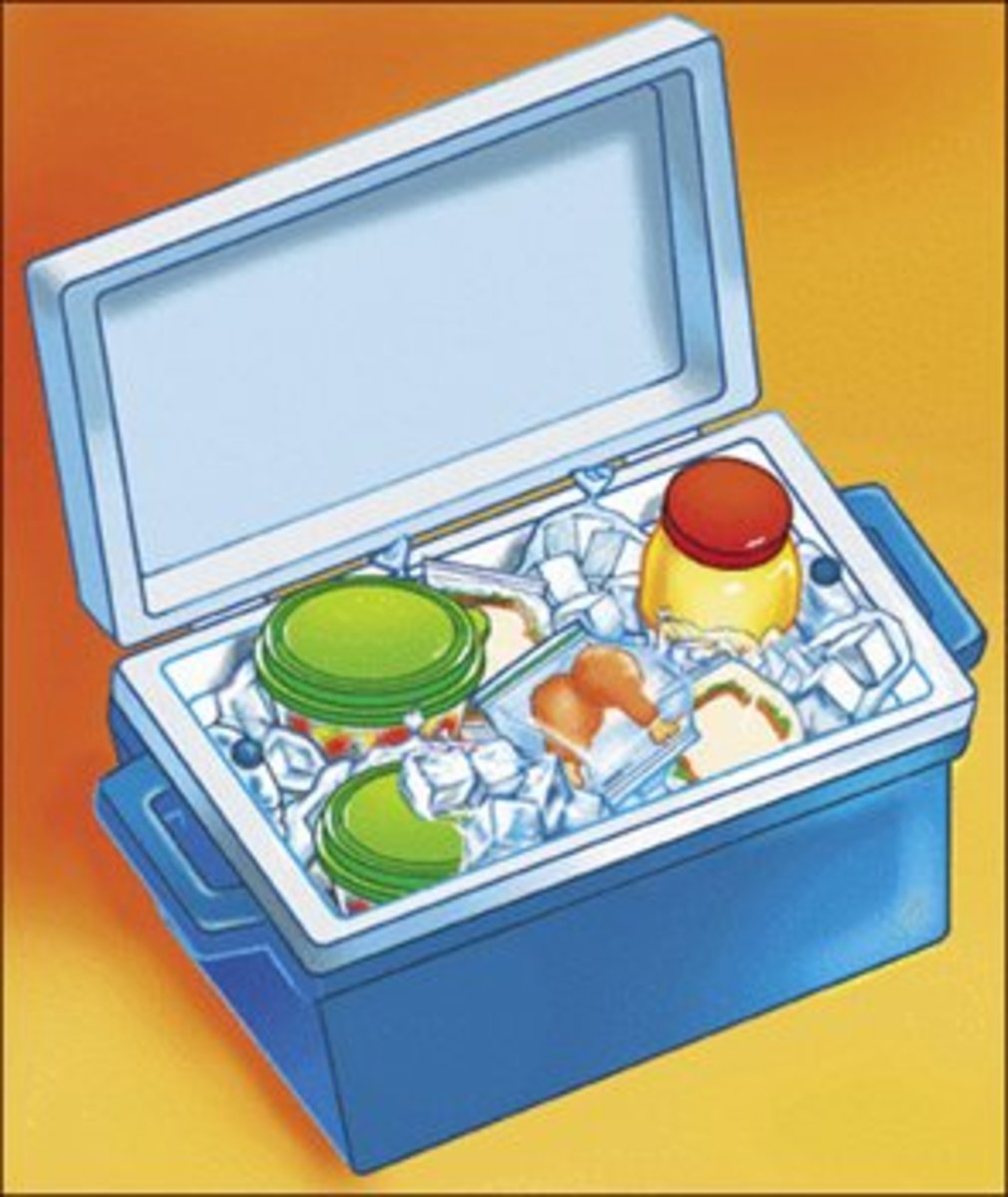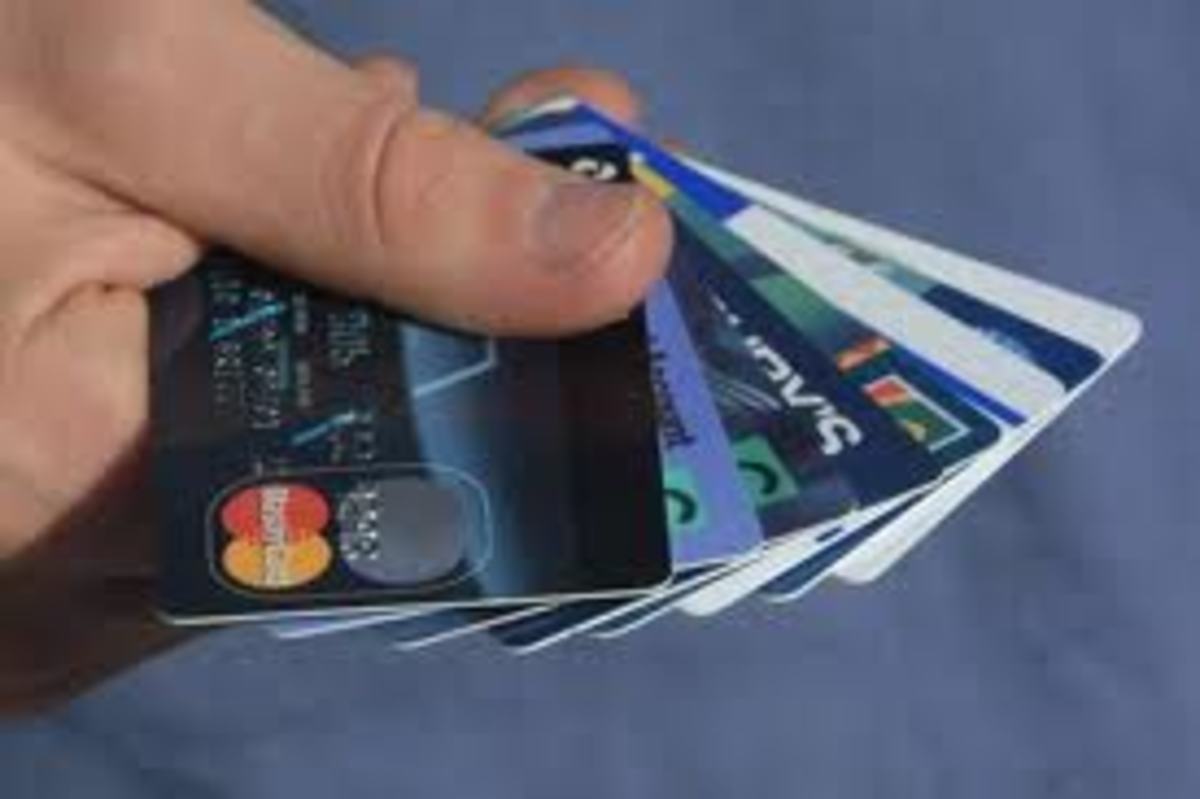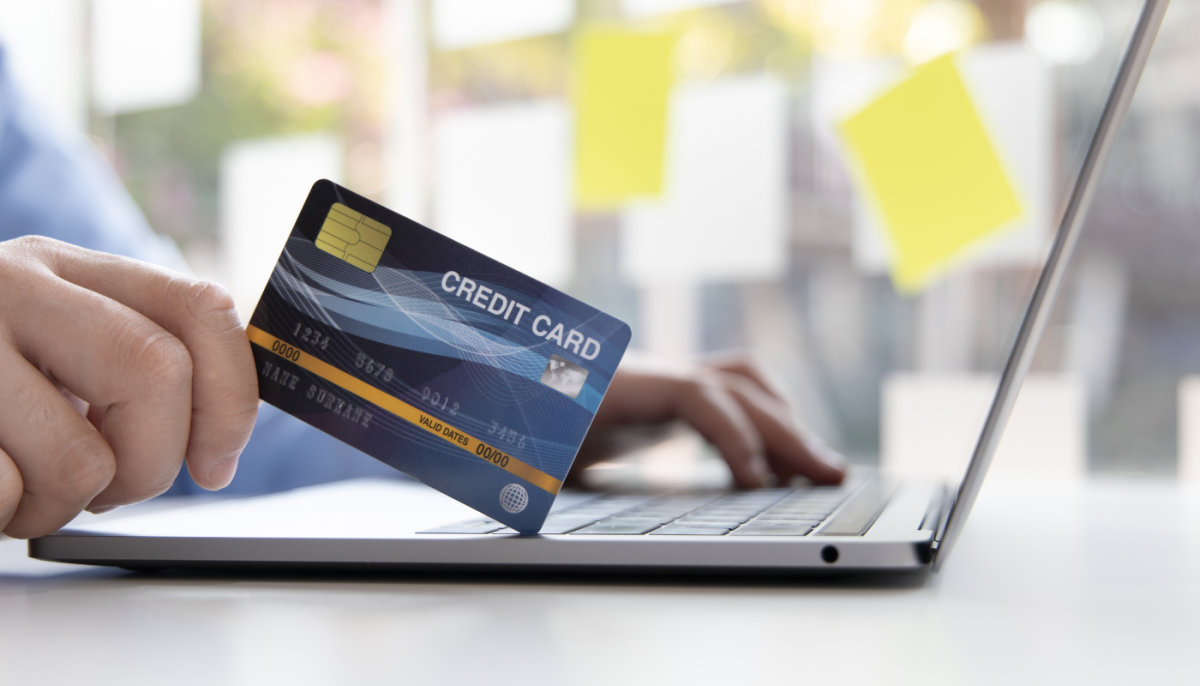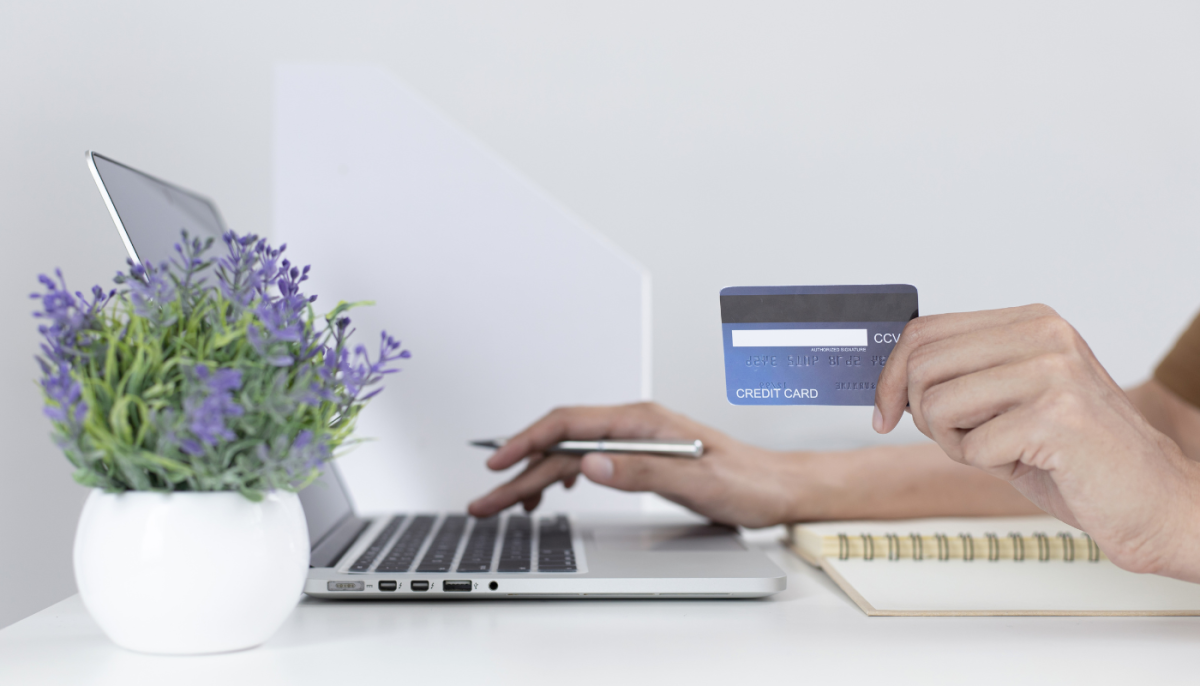How Do I Pay Off My Credit Cards
Living Life - Without Credit Cards
Yes you did indeed read that correctly. It may also surprise you to find that 1 in 5 Americans are already living life - without credit cards. This hub is a straight forward guide to paying off your bad credit card debt. This hub does not contain any affiliate links, nor does it have programs you need to be a member of. You need only read it thoroughly and learn to put new, good habits into practice.
For the majority of those of us under the age of 60, credit cards are part and parcel of having a credit facility readily available for use when we need money, especially, when we need some money fast - in a pinch. These credit cards also unfortunately are the biggest debt burden that most people encounter apart from house loans (mortgages) in one's lifetime.
The problem lies in not so much banks and financial institutions being evil and providing us with easy credit more in the problem has been, not learning how to effectively use credit and then usually after a few years of use (or abuse) most find that they cannot pay off the debt. This is done by obtaining another credit card and when we max out one card, we use a second to pay off the other. This just simply compound the issue and gets you into a deeper debt hole.
Perception plays alot with this as well. Credit cards have the easiest entry for applying for and obtaining credit from a financial institution. Consider the low entry requirements;
- A small (or even very low) income is required to qualify.
- Repayments are usually 1-2% of an outstanding balance, or around $15.00 per month, which ever is the greater minimum.
- With effective repayments, total ceiling of credit may be offered from the bank from time to time. For example, you have had a credit of $5,000 on one credit card and the banks sees you have diligently paid $50 a month for two years. The bank then offers a raise in the ceiling of $5000 to $7500 credit limit.
- More than one card from one or more financial institutions may be obtainable.
- If you have properties or mortgages, you are seen by the financial institution as a high value customer to offer credit.
Is there any benefit to living a lifestyle without credit cards? For most people in most countries, this is really a more beneficial lifestyle to have. It is most peoples dreams to own their own home - and have NO credit card debt outstanding.
Apart from investors and those who use credit for very specific and measurable requirements, like property investing. It is usually MUCH more beneficial to have a life, without the burden of credit cards. Also, its the banks who really benefit in the end, not you.
Consider Some Very Interesting (Or Downright Scary) Statistics
When you start to look at some facts and figures (and unless otherwise stated, these will be for US households in 2011) and start to realize even with the recent GFC (global financial crisis) its looks like a somewhat bleak picture.
- 610 million credit cards held by households which have also an average of $14,737 dollars per card.
- 3.6 credit cards per person
- Average APR rate on new card issued 14.73%, Average APR rate on existing card holders 13.44%
- Total average consumer credit card debt - $800 Billion.
- Total average consumer debt (Credit cards, loans, financing, mortgages, etc) - $2.45 Triillion.
- Average delinquency rate of credit cards post 60 days - 3.43%
- Average age of a US consumer to adopt a credit card under the age of 35 years is they get a card at 20.3 years.
Information obtained and based from - creditcards.com and averaged out for May 2011 date calculations
Where Does That Put YOU Into Context Of The Above?
Have a look at your credit card statements - hopefully you only have one card. Is it more or less than $14,737 dollars?
OK, even if you have only $5,000 on ONE card, imagine paying the MINIMUM only, each month say at $15. It will then take you 33+ YEARS to pay off that credit card. Even at paying off $100 a month, a more reasonable amount to pay with, it will still take over 5 years to pay off. This is because even though you are paying a minimum amount each month, or more, all your outstanding balance is still earning interest on the money you have spent, additional interest YOU still have to pay. Bank wins, you lose.
This is on the basis that you do not put on any FUTURE purchases or cash advances on the card. Remember, this $5000 is being an average consideration for only for ONE credit card.
Have a look at any and all of your current, most recent statements for all your credit card/s. Total up all balances, divide the amount in total with the minimum or the amount you pay each month. Scary when you sit down and work out how many months it would take you to pay off ALL that debt, right? Is it upsetting or distressing? Good, remember, you have the power to do positive and substantial changes to eliminate this debt.
The First Step Of Many And Making A Decision
The first step to eliminating credit card debt, is to stop using the card/s in the first place. This also means making that NEXT step of not allowing ANY excuse for a use of a card. It does not matter what excuse or reason or emergency happens in your life, do not use a credit card for it.
There is no reason at all that when one decides to reduce and finally eliminate their credit card debt that a credit card needs to be used - at all. The reason you have minimum monthly balances is due to the banks working out that if you only pay the minimum each month - and no more than that, they get their money back, plus interest on the money you spend, for pretty much - your entire life.
So decide to -
A: - Get rid of debt and be financially free of credit cards and any outstanding debt in the shortest planned time possible. Or
B - Keep using credit cards and not worry about how you can make your money work for you instead of making small payments on a credit card each month.
Here is something else that will also bake your noodle. You may or may not have that debt passed onto your estate, or your partner, when you die, so don't give them an additional worry. Each state in the USA has different laws, so if you are unsure what happens when you pass on, seek legal advice. Again, it is also different for each country as well.
The Next Step - Quick And Easy Ways To At Least Pay Down
The easiest and next progressive step after you stop using your credit cards is to consciously and consistently pay more than the minimum each month.
Consciously - As it is relatively easy to fall back into old habits when it becomes financially stressful or the unexpected happens. By being aware of the payments and making them frequently, you find that it will become a new (good) learned habit.
Consistently - So you endeavor to replace previous habits with a new habit. To pay off that debt until there is no more debt. Doing this consistently reinforces your new habit and continues each time you make payments. Every time you make the same payment and know your paying off debts, you will start to feel rather good about the whole prospect.
Option One - Pay Off The Credit Card With A Better Rate Loan
If you are in a position with your financial institution to apply and get a personal loan. Apply for one as soon as possible. Remember the purpose of this is to obtain a much better interest rate so you pay more principal off quicker rather than little principle and lots of interest.
Don't increase the loan to feel you can go and spend extra money this way. The whole purpose of this exercise is to eliminate personal debt, especially your credit card debt. Think about which is better, credit cards at 14% or a personal loan at 9%. If at all possible, roll all your credit cards debt into one single loan.
You then can have one payment for the whole amount (makes it simply so much easier to track). In some countries this is known as a debt consolidation loan. Remember, some financial institutions will not accept these forms of loan applications, so talk with a broker and your local lenders.
It pays to shop around as well, some lenders you may not have used before may be able to offer a better deal to get your business.
Option Two - Pay Off Your Credit Card Debt With Extra Funds
If Option One does not become available to you, then another step is to pay off with extra funds. Yes I know your first question straight away is, money is already tight, how the heck am I gonna get more?
It may be easier than you initially realize. How much do you spend on coffee going to work each day? How often do you snack between meals? How often do you buy the newspaper? See where Im going with this?
Your $1.25 a day coffee is $37 dollars a month towards your debt reduction. Essentially what I am suggesting is getting rid of the little niceties now, so you can pay off your card/s over a shorter period of time.
Option Three - Extra Work For Extra Money
Another way is to get a second job. Its that simple on paper, but getting a second line of work can dramatically reduce your debt in a much shorter period of time than some other methods.
If you have a second job, try to gear 90% towards paying down your card debt. The other 10% channel into a form of long term savings. This too will grow dramatically and having some funds put away for a rainy day is great when you are in a position of just about being out of debt.
If you cannot get a second job working for someone else, do you have skills you can sell or do you make things from a hobby? There is more than one way to skin that cat.
Option Four - Debt And Bankruptcy
This is another option and by no means easy. This is not an option to choose first either. I would very heavily suggest you talk to everyone you can who knows finance before you decide to use this option.
I am referring to going into bankruptcy. Bankruptcy, whilst it may seem that your debts (credit card, mortgage, car finance and any other loans or encumbrances, etc) may seem like an easy solution. Decide that it is not an easy solution, because the repercussions are harsh.
Each country treats bankruptcy different. Talk with your financial adviser, your bank, your accountant, your lender broker before even contemplating bankruptcy. This form of debt reduction severally handicaps you to earn money, own assets or become a board member of a company for several years. You cannot have a loan or mortgage either.
So, please before even looking at this option, talk to your family, talk to the people whom you have dealings with your finances, then after all is said, make a very informed decision.
A Final Note
After all is said and done. We have grown into a culture of spend, spend, spend. The economy in all first world countries is continually teetering into recession. Now is the time to tighten our belts and pay off all our debts and become a more frugal, saving form of culture.
Look, nothing is wrong with spending money. But surely it is easier to keep track and become more weary when it is our money we are spending and not someone else's! (the banks).
If you found this Hub useful and at least pointing you in the direction of changing for the positive, drop me a note of how you went in the comments. Good luck to you and look forward to you becoming debt free.

